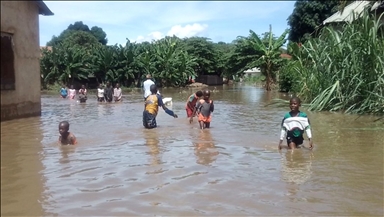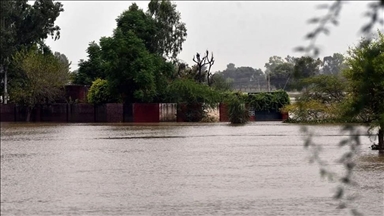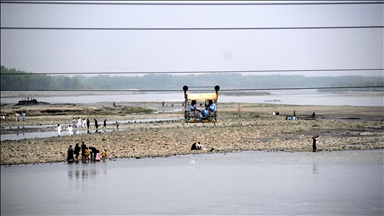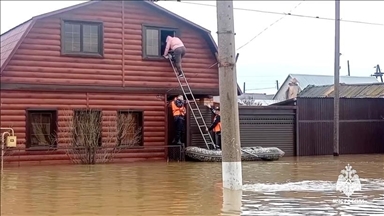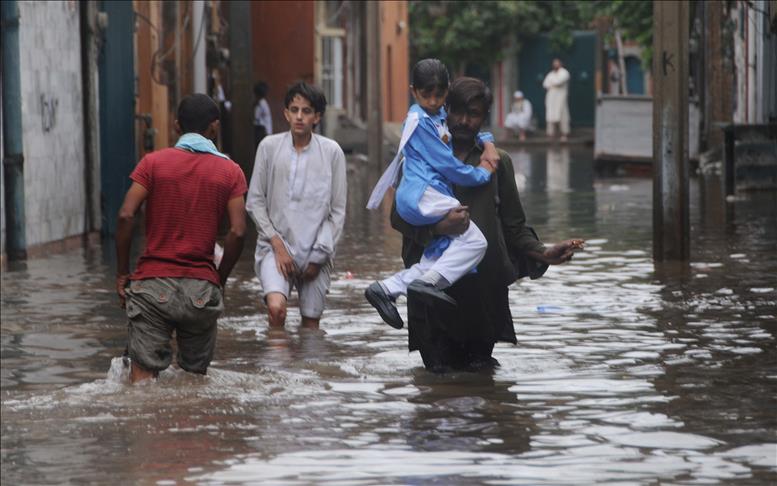
By Kaamil Ahmed
SRINAGAR, Indian-held Kashmir
Aid from the Indian government is too little, too late for the victims of September's floods.
On Thursday, the Indian government has announced financial support for the divided valley with a 7.5 billion rupee ($122 million) package for the homeless.
The Jammu & Kashmir state government announced a smaller, but similar, package earlier in the week. The aid is to prepare those made homeless for the oncoming winter in the HImalayan valley.
But for many residents it is a belated response. For almost two months Kashmiris have been picking up the pieces from the floods.
They were the worst the valley region had seen in more than a century, leaving the state capital of Srinagar with up to $10 billion of damage according to the Kashmir Chamber of Commerce.
Since the floods began, Kashmiris have relied heavily on personal solutions, family support and the work of young volunteers who organized rescue operations and distributed aid.
Mohammad Lateef, a 40-year old tea-seller, says that when the floods reached his area, he and a group of locals used the tyres from their cars to build rafts and take others to safety.
“I asked the government for boats and the division commissioner said he had to save his own family before he could help us,” said Lateef, whose family were living along with 35 others in tents beside a highway in the Kashmiri capital of Srinagar.
At the camp’s entrance hangs a sign declaring that the site is run by Jammu and Kashmir Armed Police. Lateef confirmed the police unit provided the tents but there is no longer any official presence. Provisions are supplied by student volunteers and Islamic charities.
“We don’t trust the government, they don’t help. If the army helped, it wouldn’t be so bad,” he said. “One litre of kerosene normally costs 16 rupees, but now its 60 rupees. The government isn’t doing anything.”
Lateef’s comments contrast with the images in Indian media, which showed army helicopters airlifting victims and dropping supplies. That was all superficial, he says.
“When the helicopters came, they dropped the water bottles but the helicopters came in so low that they completely destroyed our homes. It was just for the media,” he said.
His anger was shared by residents of the Sanat Nagar relief camp.
Set up and run by volunteers, it has since been shut down at the request of the state government, despite the oncoming winter, and all of its inhabitants have been made homeless.
Tahira Khan, 37, said that government paramilitaries arrived in boats during the floods but only to save their own relatives and public figures.
“There has been no help from the state government,” said Khan, a mother of three whose husband went missing 10 years ago. “If volunteers can help, why can’t the government?”
The volunteers she talked about are mostly self-organized students and recent graduates who helped to distribute the aid sent by donors throughout India. They claim to have little communication with the state government, saying that even when local officials make spontaneous visits, they rarely deliver on their promises.
These accusations levelled at Indian authorities have been denied at both the state and national government level.
“Some people have a vested interest in criticism,” said ruling Bharatiya Janata Party spokesperson MJ Akbar. “It was a large and effective relief effort and it was initiated by the prime minister.”
However large, the relief efforts were badly implemented and ineffective, according to volunteers.
“We saw that 60 to 70 percent of aid was not effective,” said Muheet Mehraj, from the volunteer group S.O.S for Kashmir. “In the past we’ve had drinking water but its been going to the wrong areas.”
S.O.S for Kashmir is trying to counter these problems with an app that maps the progress of rehabilitation, using real-time data from community volunteers throughout the valley.
“It’s not about floods, it’s about development. It’s not just about food requirements, it’s what the social need is,” he said.
“We did try to go to some politicians but they are so involved in their own affairs that they don’t understand,” says Mehraj. “But even if our work is a parallel system to government, then it’s a good thing because the people will own it.”
Anadolu Agency website contains only a portion of the news stories offered to subscribers in the AA News Broadcasting System (HAS), and in summarized form. Please contact us for subscription options.


